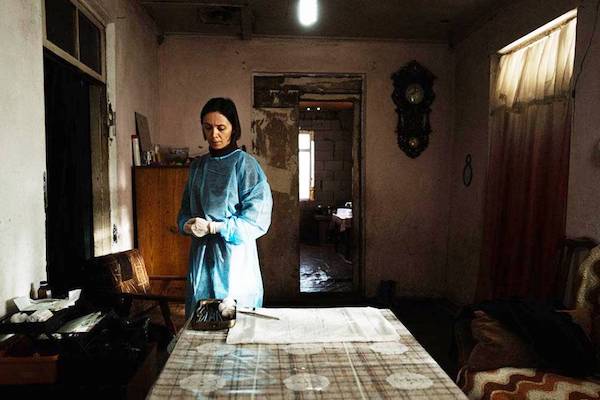In Gareth Edwards’ The Creator, a sci-fi epic set in the future, Artificial Intelligence robots and humans co-exist. After watching this thoroughly engaging magnum opus for two hours, yours truly wondered if one would sip tea with an AI robot created to write authentic human-like movie reviews. Of course not. But Gareth Edwards compels you to reimagine the case if AI were to evolve to the extent they feel and understand what it is to be human; his story is based on the belief that such AI beings would be no different to what we are to the Neanderthals. The result, as one can imagine, is an Avatar-esque tale that bats for AI rights with a lot of heart.
Here’s what happened in the world of The Creator: After an AI-related nuclear detonation in Los Angeles, the West cracks down on the development of AI across the world and this is in conflict with the policies of New Asia (East Asian countries), where humans, robots and AI robots (called simulants, which look like humans but with a visible circular opening where we have ears) co-exist peacefully. It is fascinating to see this world where metal and bamboo meet and rice fields are populated by AI machines, though having robotic monks is definitely pushing things a bit. This is quite a daring setting considering America’s history in this part of the world. In fact, America goes to the extent of making a ruthless killing machine called NOMAD that hovers over the Earth to scan and eliminate AI targets with missile strikes.
America sees a threat to eliminate in Nirmata (‘creator’ in Nepalese), the mysterious creator of AI who is developing a weapon called Alpha-O. Retired Sergeant Joshua Taylor (John David Washington) is asked to guide a special-ops team in search of Nirmata. The mission becomes a necessity to Joshua when they show him proof that his wife Maya (Gemma Chan), who died in front of his eyes in a NOMAD missile strike several years ago, is shockingly alive in the secret facility where Nirmata is reported to be. But the surprise waiting for Joshua is that Alpha-O is actually a child, Alphie (Madeleine Yuna Voyles), an advanced simulant with the power to control technology telekinetically who promises to take Joshua to meet Maya. Joshua switches sides.
The Creator (English)
Director: Gareth Edwards
Cast: John David Washington, Madeleine Yuna Voyles, Gemma Chan, Ken Watanabe
Runtime: 133 minutes
Storyline: In a dystopian future, America is cracking down on AI developments across the world, and a soldier must save an AI child believed to be a secret weapon
Though everything about the screenplay of The Creator is written much like any other sci-fi actioner — there’s also one too many laser-shooting, missiles-firing, androids-exploding war-drama action sequences from beginning to end — the film truly touches you with how loud its heart beats. Joshua and Alphie embark on a painful, stirring journey that, despite all those interruptions, leaves you misty-eyed in many places. Voyles’ big, calming eyes and an endearing performance add to that effect, and Washington is as charismatic as he’s ever been.
But this father-like human’s equation with a child robot purposely looks like any father-daughter story in other dystopian movies, leaving little space to explore any of the ethical conundrums that living in times of AI could pose.
However, watch The Creator on a big screen with a good sound system and you will forgive even the minor dips in the narrative. Cinematographers Greig Fraser and Oren Soffer spectacularly imbue life to this script, and with top-notch CGI coming into play, the visuals of the film are itself a tribute to the love story between humans and technology. There’s only one irking visual detail in this film, a huge one as well: Remember the spacecraft in Independence Day (1996)? NOMAD is one such disproportionate space-craft that’s visible in the sky to everyone from Asia to America, but shrinks in size when the story moves there.
The Creator is Edwards’ love letter to AI and a mirror to humanity to check its shortcomings first, a tale that is especially relevant now after even Hollywood is grappling with advancements in AI.
Once you shake away from this immersive dystopia, and think about the compelling opinion put forth, you might still be sceptical of technology. But art can often make us question intolerance to a possibility that wasn’t previously considered. The Creator is one such gorgeous-looking piece of art.
The Creator is currently running in theatres


















:quality(70)/cloudfront-us-east-1.images.arcpublishing.com/adn/OF7TEER2CNEHDBBODEJBMKC7KI.JPG)



















/static.texastribune.org/media/files/5e5395400eb1f412fb6d97a439483caf/SpaceX%20Brownsville%20MGO%2005.jpeg)